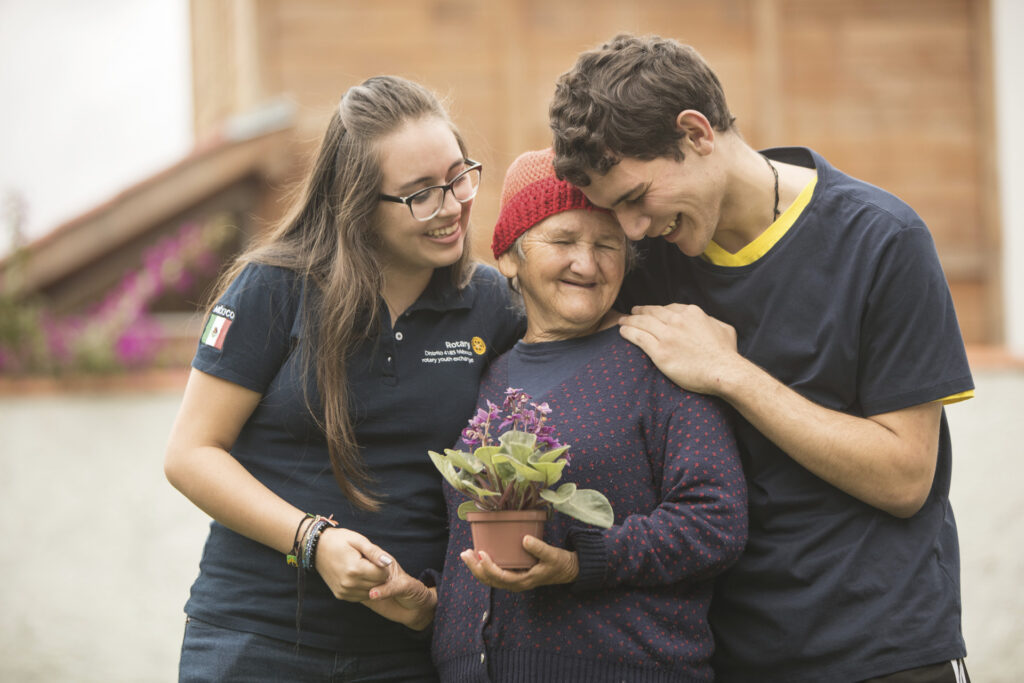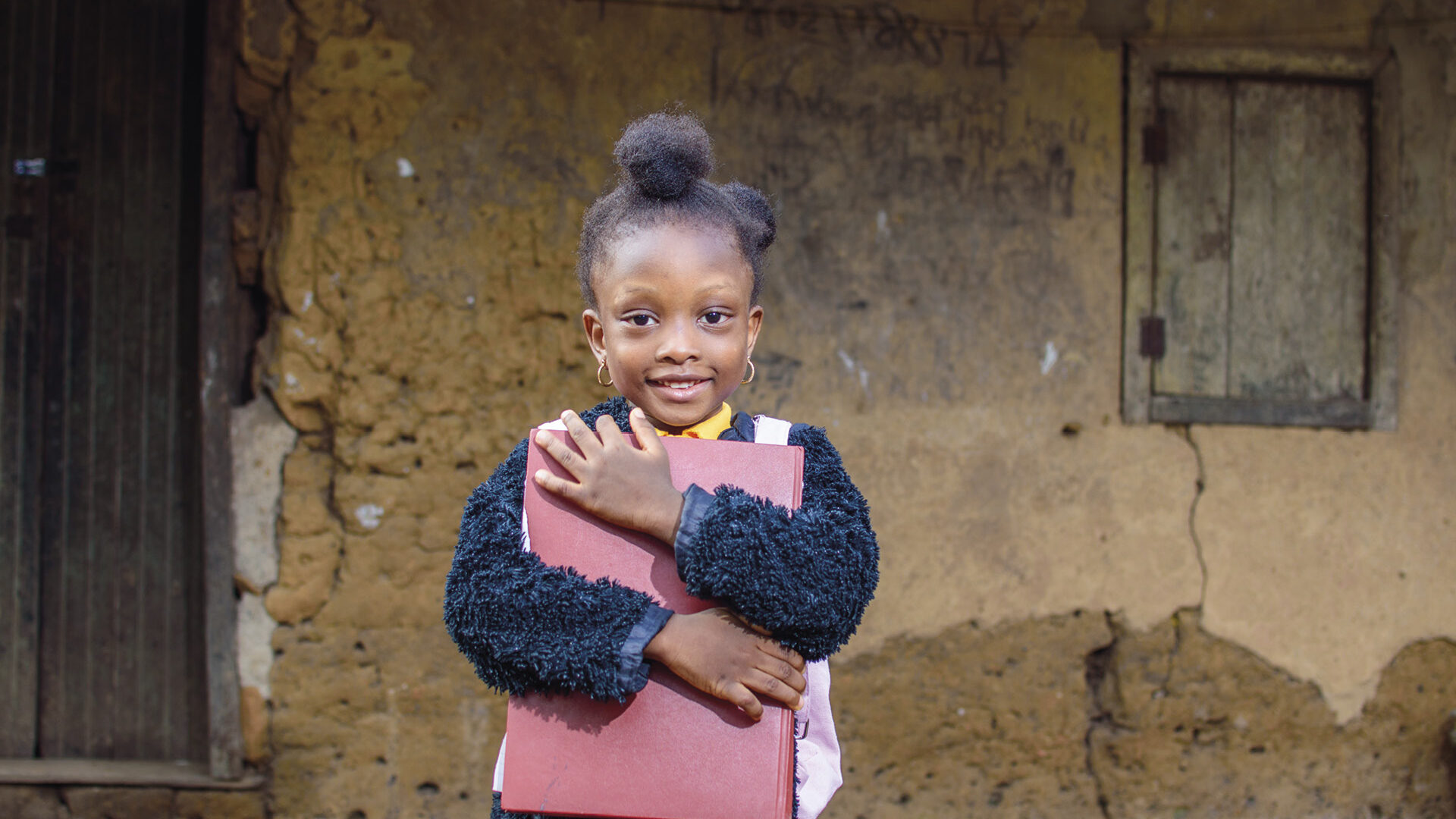By Melinda Fountain, Areas of Focus Manager, Programs & Member Engagement
In a bold move to amplify its global impact, Rotary International has unveiled a comprehensive realignment of its Area of Focus strategies with the United Nations Sustainable Development Goals (SDGs).
This strategic shift demonstrates Rotary’s commitment to addressing pressing global challenges while enhancing its role in international development efforts.
BEL
The Area of Focus strategy for Basic Education and Literacy (BEL) has the following vision: “Together we seek a more equitable and just world in which all children and adults have access to quality education and lifelong learning opportunities that equip them with numeracy and literacy skills.”
The new BEL vision directly aligns with SDG 4: “Ensure inclusive and equitable quality education and promote lifelong learning opportunities for all.”
To date, most of Rotary’s work in BEL has focused on procurement of items for schools with limited focus on improving the quality of teaching and learning in the classroom or academic skills. This strategy marks a shift in Rotary’s work in education with emphasis on strengthening teacher professional development and student learning so that all students leave schools with requisite literacy and numeracy skills needed to lead productive lives as adults.
MAIN PICTURE: Rotary’s new vision for its Basic Education and Literacy (BEL) Area of Focus directly aligns with the United Nations’ Sustainable Development Goal 4: “Ensure inclusive and equitable quality education and promote lifelong learning opportunities for all.”
Global Health
(Disease Prevention and Treatment and Maternal and Child Health)
The Area of Focus Strategy for Global Health has the following vision: “Rotary as a global organisation with clubs and members at the community level will collaborate with local, regional and international health providers to address preventable and treatable causes of illness and death while promoting equitable health for all.”
The new Global Health vision directly aligns with SDG 3: “Ensure healthy lives and promote wellbeing for all at all ages.”
To date, most of Rotary’s work in Global Health has focused on acquiring medical equipment and short-term projects with limited focus on the usage and impact of the medical equipment for long-term projects. This strategy shifts the emphasis on Global Health to:
- Increasing global grants in priority areas
- Improving monitoring and evaluation through knowledge and adoption of area of focus indicators
- Strengthening the quality of equipment-based projects by focusing on the disease or systemic issue the equipment is addressing
- Increasing visibility of Rotary’s work in the global public health sector outside of the Global Polio Eradication Initiative
- Developing collaborative efforts between Global Health and WASH in healthcare activities.
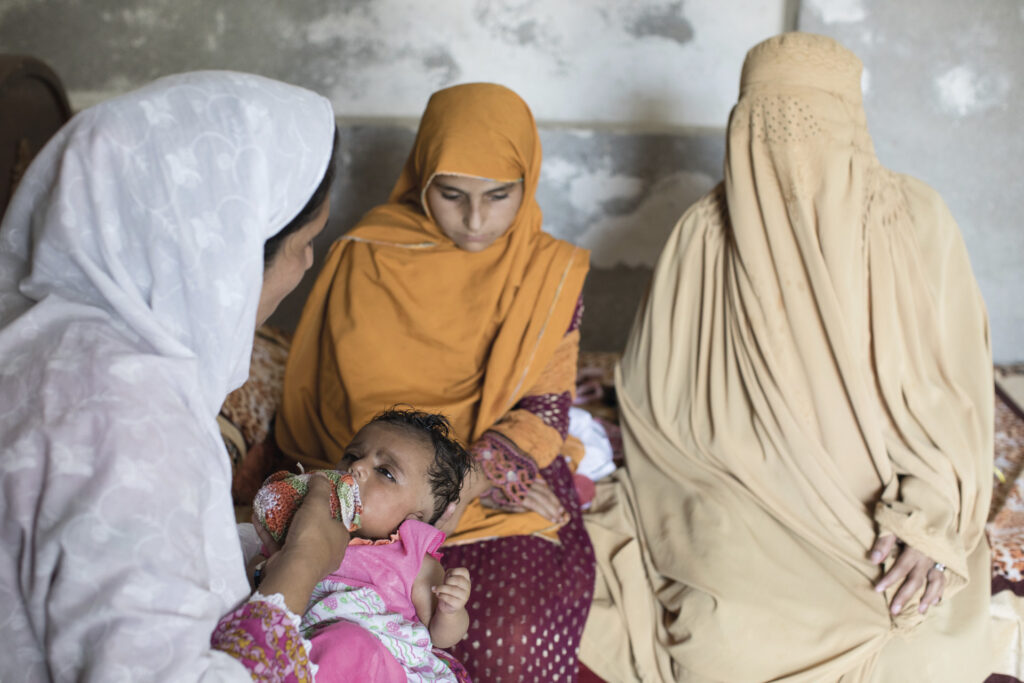
Peace
In Rotary’s Peacebuilding and Conflict Prevention Area of Focus, we invest in peacebuilders at local, regional and global levels, making long-term commitments to foster sustainable peace.
United Nations Sustainable Development Goal 16 emphasises the importance of promoting peaceful and inclusive societies as a foundation for sustainable development. Rotary’s new strategic vision aligns with this goal by enhancing our investment in the capacities of Rotary members, enabling them to effectively utilise their influence within communities to promote peace.
We are committed to developing regional networks that address the systemic challenges of violent conflict while further integrating peacebuilding principles into all our areas of focus, thereby advancing peace and sustainable development worldwide.

Environment
The vision for the Environment Area of Focus is that Rotary leaders act locally and globally with evidence to sustainably address shared environmental issues and foster harmony between people and nature. The Environment Area of Focus overlaps closely with all the other areas of focus and many of the UN sustainable development goals. The new vision statement and strategy aligns closely with the following SDGs:
- SDG 6: Clean Water and Sanitation – specifically, SDG 6.3.2, referring to the proportion of waterbodies that attain good ambient water quality
- SDG 7: Affordable and Clean Energy
- SDG 13: Climate Action
- SDG 14: Life Below Water
- SDG 15: Life on Land
Rotary’s new strategic partnership with the United Nations Environment Program (UNEP) encourages Rotary and Rotaract clubs to take action in the Community Action for Fresh Water initiative to protect, sustain and restore a local freshwater body (e.g. rivers, streams, lakes and wetlands).
Through this effort, citizen science can help attain SDG 6 goals by providing local governments with baseline water quality data, projects to help clean up plastics and litter in and around the water, and advocate for policies to reduce pollution to our freshwaters.
Projects under the Community Action for Fresh Water initiative will likely have positive impacts on sustainable land use, fish habitats and more (visit rotary.org/UNEP for more information).
Other current Rotary projects that are making an impact include: The Environment Sustainability Rotary Action Group’s goal of 1 M solar panels, with more than 48,000 recorded to date, which provide affordable, clean energy and reduce our dependence on fossil fuels; and efforts among all ages of Rotary members to reduce food waste in schools, promote composting in local communities, and planting native species (e.g. native pollinator plants, mangroves) to encourage biodiversity and prevent flooding in coastal areas.
This strategy shifts the emphasis from not only providing infrastructure and technology to training local communities to maintain and sustain practices that benefit our environment. Our efforts are concentrated on raising awareness, strengthening our numbers and involvement with our strategy UNEP partnership, and growing our service projects to result in short-term and long-term outcomes that have a positive impact to the environment.
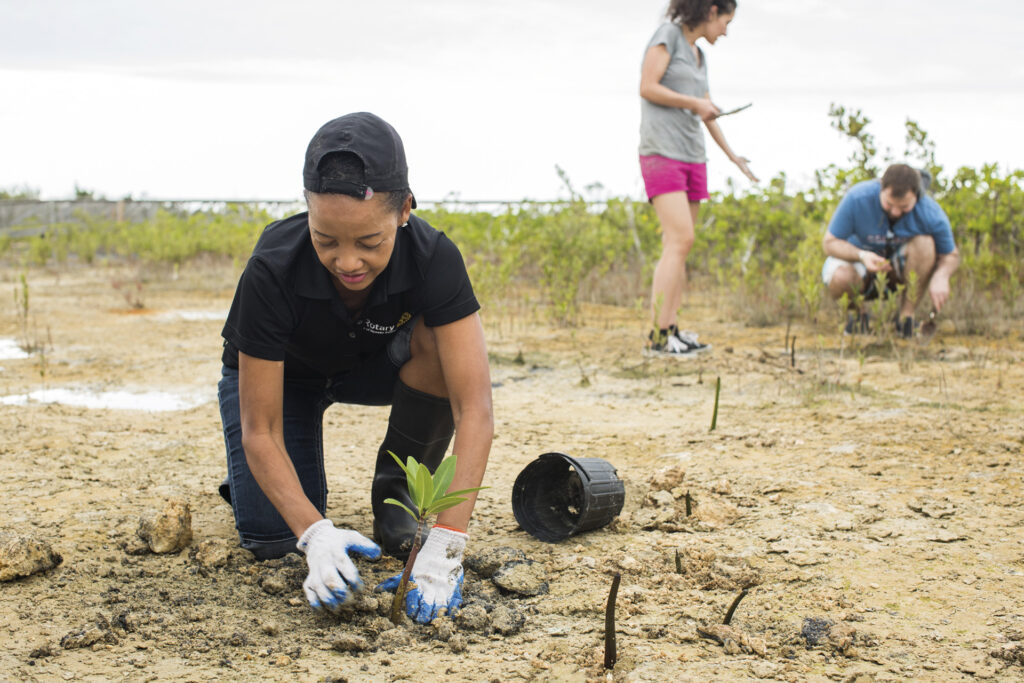
PICTURED: The vision for Rotary’s Environment Area of Focus is that Rotary leaders act locally and globally with evidence to sustainably address shared environmental issues and foster harmony between people and nature.
WASH
The Area of Focus Strategy for Water, Sanitation and Hygiene (WASH) has the following vision: “Rotary envisions a water-secure world where governments, service providers and civil society have the ownership, skills, financing and people to provide sustainable, climate-resilient, safe water, sanitation and hygiene services for all.”
Rotary’s Global WASH Strategy aligns with SDG 6: “Ensure availability and sustainable management of water and sanitation for all.” Specifically:
- Target 6.1: Safe and affordable drinking water
- Target 6.2: End open defecation and provide access to sanitation and hygiene
- Target 6.3: Improve water quality, wastewater treatment and safe reuse
- Target 6.4: Increase water-use efficiency and ensure freshwater supplies
- Target 6.5: Implement integrated water resource management
- Target 6.7: Expand water and sanitation support to developing countries
- Target 6.8: Support local engagement in water and sanitation management
To date, most Rotary service projects in WASH have focused on one-off short-term projects with a heavy emphasis on the installation of new construction.
Seldom do projects sufficiently address the need to sustain positive behaviour change (e.g. handwashing, pay-for-service, safe water storage, end of open defecation, etc.), strengthen local governance and management practices, or monitor whether WASH services have been sustained for the long term.
Rotary’s Global WASH Strategy shifts the emphasis in WASH:
- From one-off projects to multi-club coordinated service driven by a common vision (regional planning for universal coverage).
- From infrastructure driven interventions (taps and toilets) to projects that build local leadership, governance, technical skills and behaviour change needed to sustain WASH services for the long term.
- To monitoring Rotary service activities and using that data to inform and guide local decision making, and advocate for local WASH needs via standard WASH indicators.
- From one-off discrete projects to projects that focus activity on improving access to safe and sustainable WASH services in schools and healthcare facilities.
- To building the capacity of our members to become effective WASH advocates, locally or nationally.
- From bi-lateral partnerships to multilateral strategic partnerships where we can multiply our resources and impact to communities.
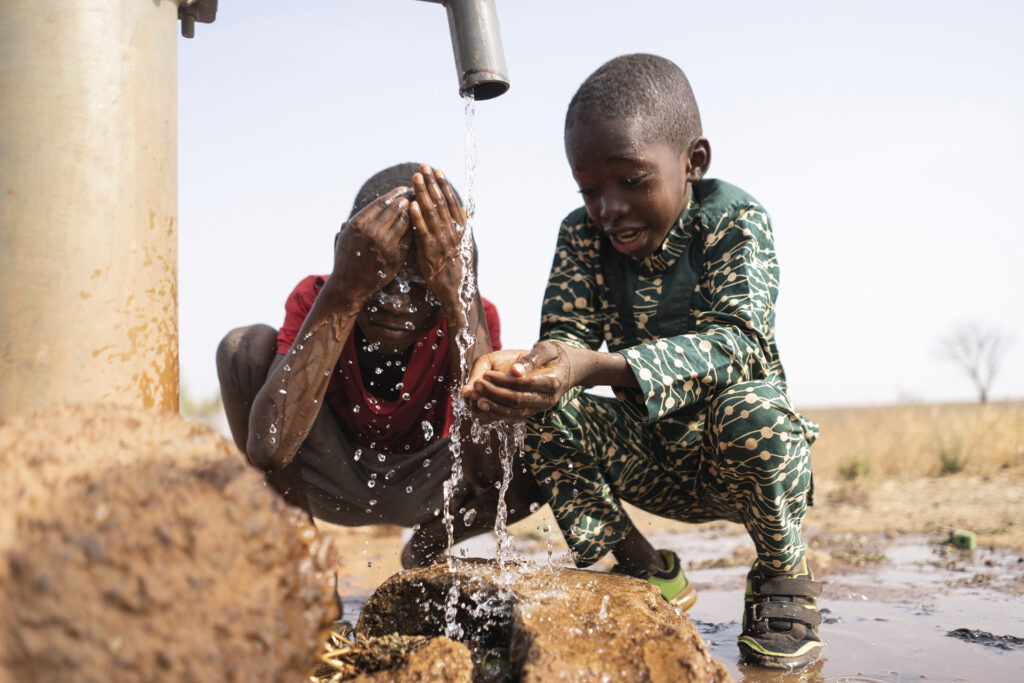
PICTURED: Rotary’s Global WASH Strategy aligns with SDG 6: “Ensure availability and sustainable management of water and sanitation for all.”
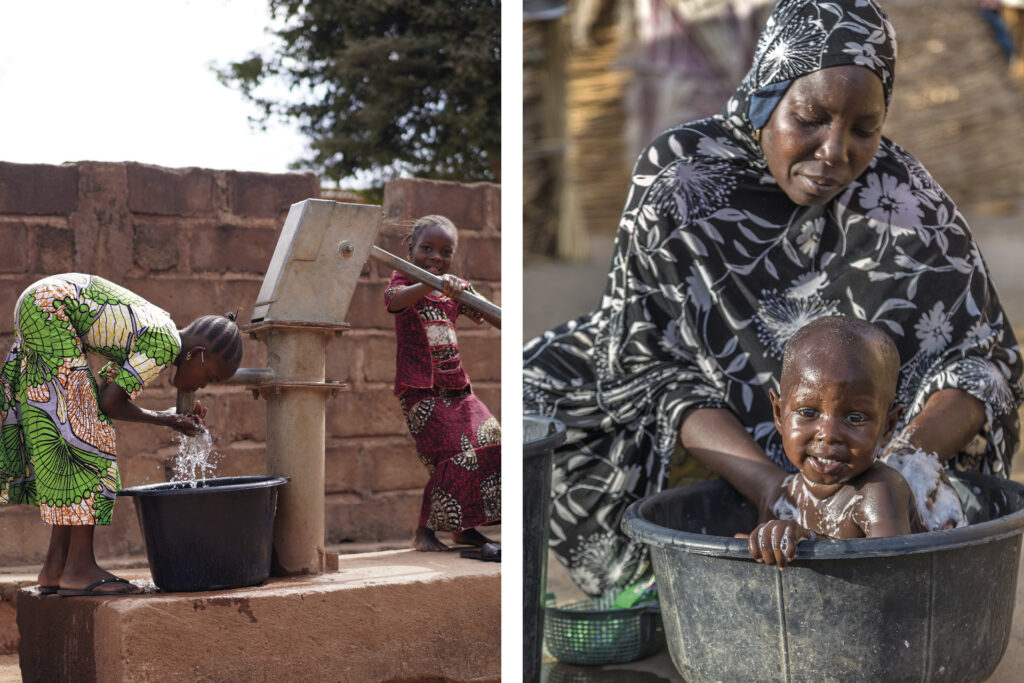
CED
The Community Economic Development (CED) Area of Focus plays a crucial role in advancing SDGs 1, 2, 5, and 8 by promoting sustainable economic opportunities in underserved communities globally.
The CED Area of Focus addresses SDGs 1 (No Poverty) and 8 (Decent Work and Economic Growth) through programs that improve access to financial services, provide vocational training, and support small business development. These efforts aim to reduce poverty and foster inclusive economic growth.
Agricultural development programs within CED target SDG 2 (Zero Hunger), enhancing food security and farmer incomes through capacity building and improved market access.
This Area of Focus also supports SDG 5 (Gender Equality) by emphasising women’s economic empowerment. CED programs often include components for women’s leadership development, entrepreneurship support and increased economic access, directly addressing gender-based economic inequalities.
This comprehensive approach demonstrates how a focused development strategy can simultaneously address the interconnected challenges of poverty, hunger, gender inequality, and economic growth.
As People of Action, Rotary members use their expertise and networks to implement CED projects that create lasting change, improving lives and strengthening communities around the world.
With the alignment of the Rotary’s Areas of Focus with the SDGs, Rotary International not only reaffirms its commitment to Service Above Self but also positions itself as a vital contributor to the global sustainable development agenda. As the world grapples with complex challenges, Rotary’s localised approach, coupled with its global reach, offers a unique and powerful model for creating positive change.
